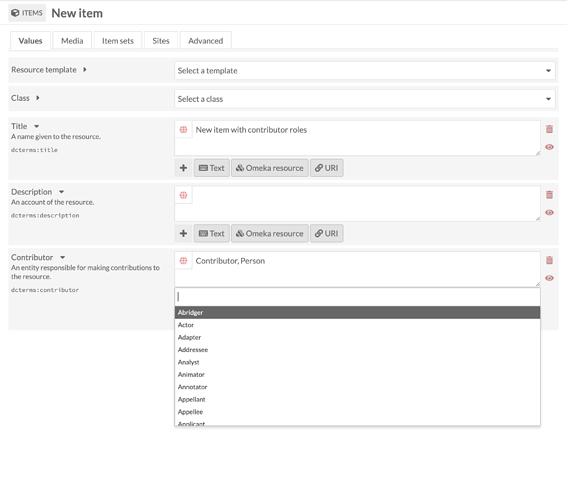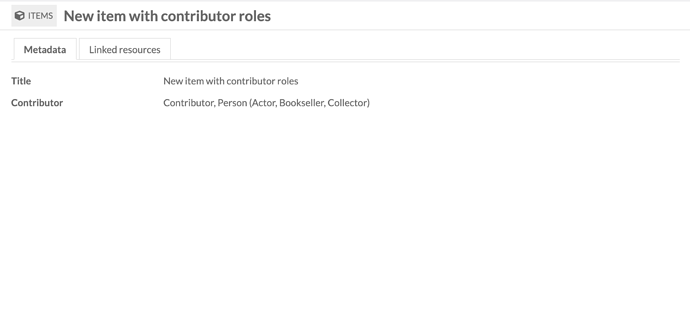Hello folks,
Wanted to check if there’s any interest in the community in a module I’ve been developing at our institution. This module, Relators, adds functionality so that you can specify relators/roles for the DC contributor field, so that for a given contributor, you can say that they were the ‘Author’, ‘Artist’, or ‘Designer’, etc., any of the relators listed on the LOC Linked Data service for MARC relators. The advantage of something like this is that you can keep all the agents in one field and the relator info is stored separately and doesn’t interfere with search and collocation. For example, if you use a module like Metadata Browse and had one item with contributor Chanel, Coco (Designer) and another Chanel, Coco (Author), it will still match them up because the relator data is not part of the label or the value. I’ve developed it enough so that it works more or less for our own purposes, but wanted to see if there was any additional interest that would warrant developing further for a public release.
You can check it out here. It should work pretty straightforwardly, but again there’s room for development:
Thanks for any input,
Joseph Anderson

